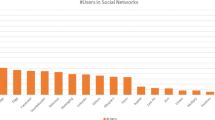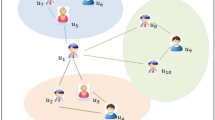Abstract
In the process of conducting online product recommendations, the lack of comprehensive user profiling in constructing user personas has led to low Top-10 hit rate, average reciprocal rank, and normalized discounted cumulative gain of recommended products. To effectively address this issue, a user feature-based personalized recommendation method for mobile social networks (MSN) is proposed. By analyzing the basic attributes, interaction attributes, feedback attributes, and interest attributes of MSN users, user attribute features are extracted to build user personas. Based on these user personas, personalized recommendations for mobile social network products are achieved using MetaEE. This involves updating the recommended products based on the collection of user interactions with historical items until there is overlap between the support set and the query set of the personalized recommendation meta-learning samples. The corresponding products are then considered as the final recommended results. Experimental results demonstrate that the designed recommendation method outperforms the comparison methods in terms of Top-10 hit rate, average reciprocal rank, and normalized discounted cumulative gain across multiple experimental scenarios, indicating a promising recommendation performance.
Research Project: Xiamen Ocean Vocational College’s Institute-level Research Project (High-level Talent Project) KYG202004.
Access this chapter
Tax calculation will be finalised at checkout
Purchases are for personal use only
Similar content being viewed by others
References
Liu, Y.C., Cao, Y.Y., Liu, J.X., et al.: Heterogeneous information network recommendation algorithm based on dynamic iterative sampling. Comput. Simul. 005, 039 (2022)
Guo, Z., Yu, K., Li, Y., et al.: Deep learning-embedded social Internet of Things for ambiguity-aware social recommendations. IEEE Trans. Netw. Sci. Eng. PP(99), 1 (2021)
Su, C., Zhou, H., Gong, L., et al.: Viewing personalized video clips recommended by TikTok activates default mode network and ventral tegmental area. Neuroimage 237(6), 118136 (2021)
Fan, J., Jiang, Y., Liu, Y., et al.: Interpretable MOOC recommendation: a multi-attention network for person6alized learning behavior analysis. Internet Res. Electron. Netw. Appl. Policy 2, 32 (2022)
Jacobi, A., Hunter, G., Whelan, K., et al.: P.092 successful implementation of a supported conversation program on an acute stroke unit. Can. J. Neurol. Sci./Journal Canadien des Sciences Neurologiques 48(s3), S45–S46 (2021)
Wu, H.: Application of collaborative filtering personalized recommendation algorithms to website navigation. J. Phys. Conf. Ser. 1813(1), 012048 (2021)
Zhou, Q., Su, L., Wu, L., et al.: Deep personalized medical recommendations based on the integration of rating features and review sentiment analysis. Wirel. Commun. Mob. Comput. 2021(7), 1–9 (2021)
Xiao, X., Sun, R., Yao, Z., et al.: A novel framework with weighted heterogeneous educational network embedding for personalized freshmen recommendation under the impact of COVID-19 storm. IEEE Access 9, 67129–67142 (2021)
Pokushalov, E., Losik, D., Kozlova, S., et al.: Association between personalized evidence-based anticoagulation therapy and outcomes at 1-year follow-up in patients with atrial fibrillation: an analysis from the Atrial Fibrillation registry. Eur. Heart J. (Suppl. 1) (2021)
Szamreta, E.A., Wayser, G.R., Prabhu, V.S., et al.: Drivers and barriers to information seeking: qualitative research with advanced cervical cancer patients in the United States. J. Clin. Oncol. 39(15_suppl.), e18705 (2021)
Author information
Authors and Affiliations
Corresponding author
Editor information
Editors and Affiliations
Rights and permissions
Copyright information
© 2024 ICST Institute for Computer Sciences, Social Informatics and Telecommunications Engineering
About this paper
Cite this paper
Zhou, M., Xu, W., Li, X. (2024). Research on Personalized Recommendation of Mobile Social Network Products Based on User Characteristics. In: Yun, L., Han, J., Han, Y. (eds) Advanced Hybrid Information Processing. ADHIP 2023. Lecture Notes of the Institute for Computer Sciences, Social Informatics and Telecommunications Engineering, vol 549. Springer, Cham. https://doi.org/10.1007/978-3-031-50549-2_14
Download citation
DOI: https://doi.org/10.1007/978-3-031-50549-2_14
Published:
Publisher Name: Springer, Cham
Print ISBN: 978-3-031-50548-5
Online ISBN: 978-3-031-50549-2
eBook Packages: Computer ScienceComputer Science (R0)




